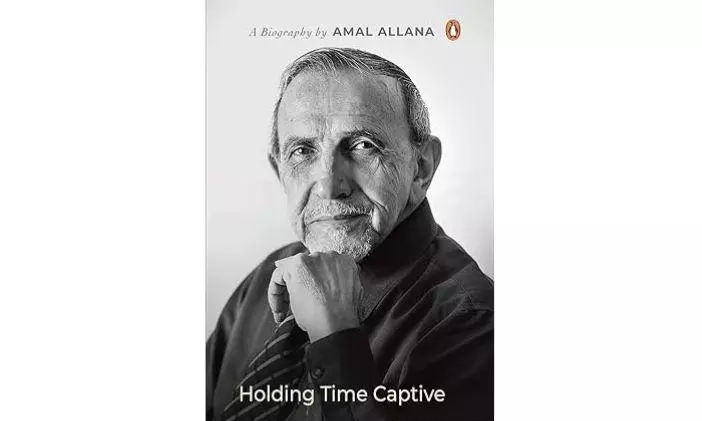Book Review | An Indian with an Arab’s inner reserves

Ebrahim Alkazi’s father Hamed Alkazi was an immigrant businessman in India. He came from Nejd in Saudi Arabia as a young man to Calcutta and then to Bombay. Through hard work and honesty, he established himself in the export business. He raised his family in India. The children stayed back in India when he left the country in 1948 after Gandhi’s assassination, first for Karachi, then London, and to Beirut. Hamed while providing for their Western education in Poona saw to it that they were taught Arabic and also the Quran. Ebrahim and his siblings retained their parents’ values of etiquette and social conservatism.
Ebrahim grabbed the opportunities his education provided him of plunging into literature, music, art of times that India was exposed to during the colonial period. The politics of the period had a different impact on Hamed and Ebrahim. The father was apprehensive of the political volatility, but the son was electrified. Amal Allana, the daughter, theatre personality in her own right and biographer, captures the magical moment of Ebrahim’s indirect baptism. He is pulled into the Congress session of August 8, 1942, when the Quit India movement was announced. Ebrahim was on his way to Sophia College for a debate at 9 am and reach St Xavier’s for an audition for the college drama at 2 pm. The streets were crowded and people were rushing in one direction. He goes to the meeting and he is mesmerised by Gandhi’s simple words. Amal recounts the episode intertwining it with that of his elder brother Ali going off to join the army even before Ebrahim came to Bombay.
If business was what engaged Hamed Alkazi, it was the arts, especially theatre, that absorbed the full attention of Ebrahim. His burning passion was to do something in the theatre and Bombay provided the door to enter upon his lifelong vocation. He had ready entry to a group of young men led by Sultan Padamsee, known to the social group as Bobby, who belonged to a well-off Khoja family, and the upper social circle of Bombay. Ebrahim became a natural member of the group. It was here that he met Roshen Padamsee, whom he will marry when he barely 21. But before that Bobby commits suicide. Amal handles his sexuality issue in the most natural manner, which any other biographer would have made into a major talking point of the 1940s Bombay.
Ebrahim, like many young men and women of the time in urban India, was consumed by the passion for radical modernism that was unfolding all over Europe in the arts and in literature. It was this mission that drove Ebrahim to go to England, and he sought his father for financial help, to pursue first painting and then theatre at the Royal Academy of Dramatic Art (RADA) in London.
Despite his hunger for all that is modern, Ebrahim was not a bohemian. He remained an Arab at heart, simple, reserved and taciturn. He had studied deeply the issues of theatre but he was not loquacious. He could explain his point of view emphatically, and this is what carries the day for him when he attends the theatre seminar in Delhi to which he is invited in the early 1950s, and which leads to the government appointing him the director of the National School of Drama in Delhi in the early 1960s.
At one level, Ebrahim’s and Roshen’s life is a swirl of celebrities in the art circle of Bombay, and later in Delhi. But the relations between Ebrahim and Roshen were strained. At one point, Ebrahim was drawn to Uma, the first wife of Chetan Anand, and after her divorce from Chetan, she was keen to be with Ebrahim. But Ebrahim decides to hold back. The Arab sense of duty remains ingrained in him. When he is facing an internal crisis, he returns to his family, to the Arab lands, to recover his sense of balance.
Here is the strange case for today’s India, which is turning ominously xenophobic. Ebrahim, the Arab at heart, was passionately devoted to create a vibrant contemporary, modern theatre in independent India, and he showed how to do it when he turned from the production of plays in English in Bombay to producing Mohan Rakesh’s Aashaadh ka Ek Din and Dharamvir Bharati’s Andha Yug in Hindi. He was an Indian with an Arab’s inner reserves. It is something that will beat the understanding of many in today’s India.
Ebrahim Alkazi: Holding Time Captive
Amal Allana
Penguin Vintage
pp. 647; Rs 1,299

